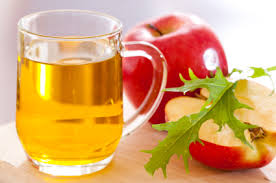We've all experienced that post-meal potbelly that causes us to unbutton our jeans underneath the table. It's one thing when this happens after our Thanksgiving dinner, but it's even more frustrating when we feel this way after a healthy meal.
Treating bloat can be tricky as there are no universal triggers. Whether dairy, gluten, or carbonated drinks are the culprit, the aftermath is equally unpleasant. If you are aware of your trigger foods, unfortunately there is no better solution than eliminating or limiting them. For those of you out there still trying to figure out your comfort zone, we are going to discuss a few foods that you can add to your diet that can help relieve that horrible feeling of bloat.
1. Asparagus: Asparagus has gotten a less than sexy rep as the offender for smelly urine. We are here to give asparagus a comeback as a bloat-fighting superfood. By increasing your urine output, asparagus helps to relieve the water retention that is making your pants feel tight. Asparagus also contains prebiotics; the "food" that nourishes probiotics. Maintaining the healthy probiotics in the gut aids in a smooth digestion process, preventing and reducing excess gas. Finally, the insoluble and soluble fiber in asparagus increases overall digestive health. A side of roasted asparagus drizzled with lemon is now looking a bit sexier, right?
2. Ginger: This amazing anti-inflammatory food relaxes the muscles in the digestive tract to relieve cramping and spasms. It also helps move gas more quickly through the digestive tract to relieve any discomfort. Though we love ginger tea, you should not be intimidated by the actual ginger root. The root (yes, the odd looking ginger-bread man in the produce aisle) is a delicious compliment to hot water with lemon. Lemon is another natural diuretic and gentle laxative that will help your body relieve the excess water and sodium it is retaining.
3. Miso: Fermented foods such as miso are full of probiotics that, as we mentioned, help maintain balance in our gut. Antibiotics, diet, and lifestyle factors can all eliminate healthy bacteria living in our intestines that otherwise help digestion run smoothly. Eliminating healthy bacteria makes more room for the bad guys that are wreaking havoc during digestion. If you want more information on probiotics, we've got you covered in our previous post, "The Power of Probiotics". Miso paste contains healthy bacteria that have a similar content to the bacteria found in our intestines aiding in digestion. Be sure to choose unpasteurized miso, as the pasteurization process kills the healthy bacteria.
4 . Peppermint: We are all about a cup of peppermint tea to ease the belly. Peppermint helps prevent spasms or cramping of the intestines for a smoother digestive process. The volatile oils in peppermint stimulate your gallbladder to release bile that your body uses to effectively digest fats. Peppermint also has a detoxifying effect on the liver which helps the liver to do its job effectively.
5. Fennel: Indian restaurants know what's up. Have you ever noticed a bowl of fennel seeds on your way out of an Indian restaurant? While chewing on the seeds helps freshen breath, they also can help prevent any unwanted aftermath of that spicy curry. The anti-inflammatory and anti-spasmodic properties of fennel relax contracted intestinal muscles so that trapped gas can dissipate. Fennel seeds can be found in bread but we recommend chewing directly on the seeds or sipping a fennel tea after eating.









